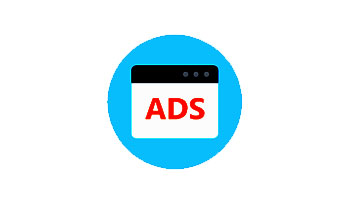
Ad Server Software:
Ad server software is a central platform for advertisers, publishers, and ad networks. It can efficiently serve, track, and optimize online advertisements. It is a tool used in the advertising industry. It helps manage and deliver digital advertisements to various online platforms.
Key functions of ad server software include:
- Ad Storage and Management
- Ad Delivery
- Targeting
- Scheduling
- Rotation
- Tracking and Analytics
- Frequency Capping
- Optimization
- Reporting
- Integration
- Audience Segmentation
- Geotargeting
Types of Ad Server Software:
Ad server software is categorized into two main types: publisher ad servers and advertiser ad servers. Publisher ad servers are used by websites to manage and display ads, while advertiser ad servers offer independent counting and tracking systems for advertisers and marketers. These servers assist in measuring clicks, impressions, and return on investment for advertisements on specific web pages.
- Publisher Ad Servers
- Advertiser Ad Servers
- Third-Party Ad Servers
- Self-Hosted Ad Servers
- Cloud-Based Ad Servers
- Video Ad Servers
- Mobile Ad Servers
- Native Ad Servers
- Programmatic Ad Servers
- Social Media Ad Servers
- Dynamic Ad Servers
- Rich Media Ad Servers
- Retargeting Ad Servers
- Video Streaming Ad Servers
- Local Ad Servers
- Contextual Ad Servers
Functionality of Ad Server Software:
Ad server software offers a range of essential functionalities:
- Ad Upload and Management: Allows uploading and management of ads, including rich media content.
- Traffic Control: Enables traffic management based on diverse business rules and criteria.
- Targeting: Provides the capability to target ads to specific users or content categories.
- Optimization: Offers optimization based on performance metrics and results.
- Reporting: Generates reports on impressions, clicks, interactions, and more.
- Frequency Capping: Limits the number of times a user sees an ad to improve user experience.
- Sequencing: Allows sequencing of ads for a strategic ad campaign.
- Automation: Supports automated optimization of campaigns and creative content.
- Integration: Can integrate with DSPs and other platforms for holistic ad management.
Benefits of Using Ad Server Software for Advertisers:
Enhanced Structure and Accuracy: Advertisers benefit from organized ad serving activities, reducing costs and minimizing errors.
Centralized Management: Ad server software offers a centralized platform for managing multiple campaigns from different sources.
Cross-Platform Campaigns: Advertisers can run complex, cross-platform campaigns using various ad formats.
Real-Time Optimization: Ad campaigns can be optimized in real time, enabling precise targeting and audience tagging.
Performance Monitoring: Advertisers can monitor results and collect performance data from different sources.
Budget Allocation: Ad budgets can be effectively allocated to high-performing traffic sources.
Customization: Advertisers can use diverse ad formats, templates, and targeting options for more personalized campaigns.
In conclusion, ad server software plays a pivotal role in managing and optimizing advertising campaigns. It provides tools for precise targeting, real-time optimization, and centralized management, ensuring effective deployment of ads across various platforms and maximizing return on investment for advertisers.